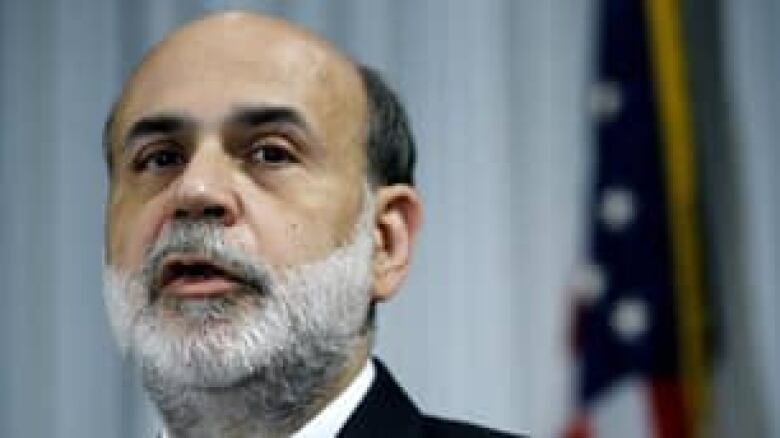U.S. keeps interest rates unchanged
Fed decision made with one dissenting vote
TheFederal Reserve Board's open market committee, as expected, left the country's benchmark interest rate unchanged Tuesday.
The Fed's rate has been held to between zero and 0.25 per cent for more than a year.

In the commentary with the decision, the Federal Reserve Board's monetary policy committee repeated a signal it has been sending for months, saying that with the U.S. economy running well below capacity,"subdued inflation trends and stable inflation expectations," low levels of the federal funds rate are warranted "for an extended period."
Some economists interpret that phrase as meaning the rate will stay low for at least six months.
The committee saw little prospect of inflation.
It said economic conditions "continue to strengthen, the labour market is stabilizing, household spending is expanding at a moderate rate but remains constrained by high unemployment, modest income growth, lower housing wealth and tight credit.
"Business spending on equipment and software has risen significantly," it continued, "however investment in non-residential structures is declining. Housing starts have been flat at a depressed level and employers remain reluctant to add to payrolls while bank lending continues to contract."
Hoenig dissents
Once again, however, as he did at the last meeting in January, Kansas City Federal Reserve Bank president Thomas Hoenig cast a dissenting vote to the use of that phrase, saying it is "no longer warranted." He would prefer to have rates move up sooner than later in order to head off any threat of inflation.
The decision came one month after the Federal Reserve announced it would boost the rate American banks pay for emergency loans, part of a broader move to pull back the extraordinary aid it provided to fight the worst financial and economic crisis since the 1930s.












_(720p).jpg)


 OFFICIAL HD MUSIC VIDEO.jpg)
.jpg)



























































































